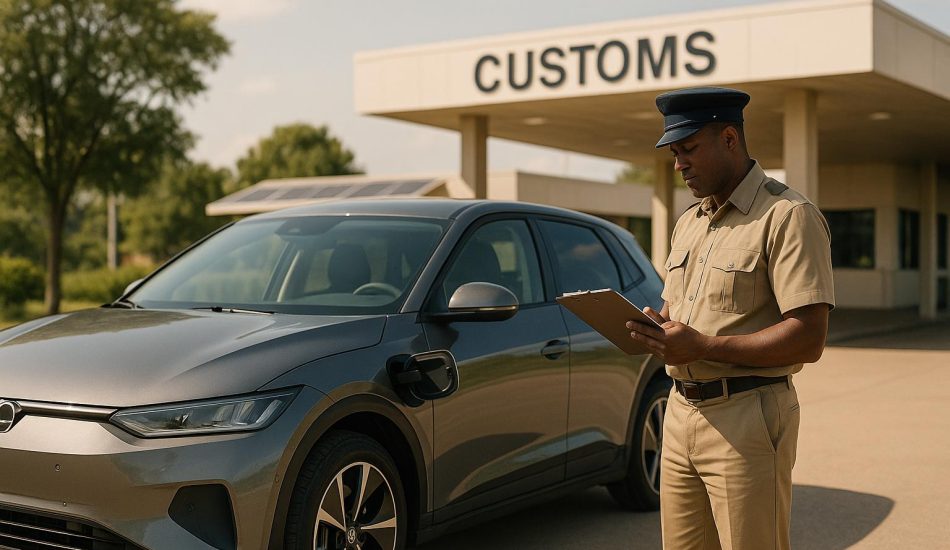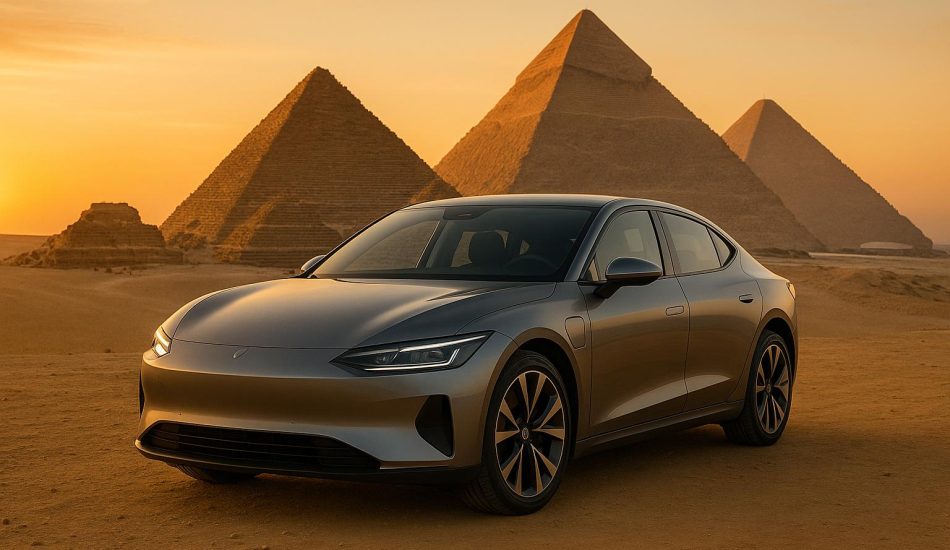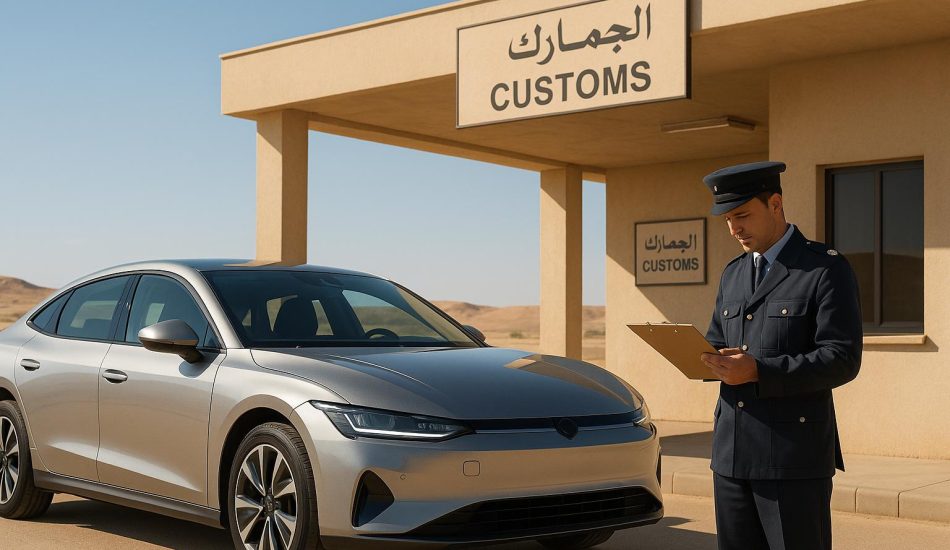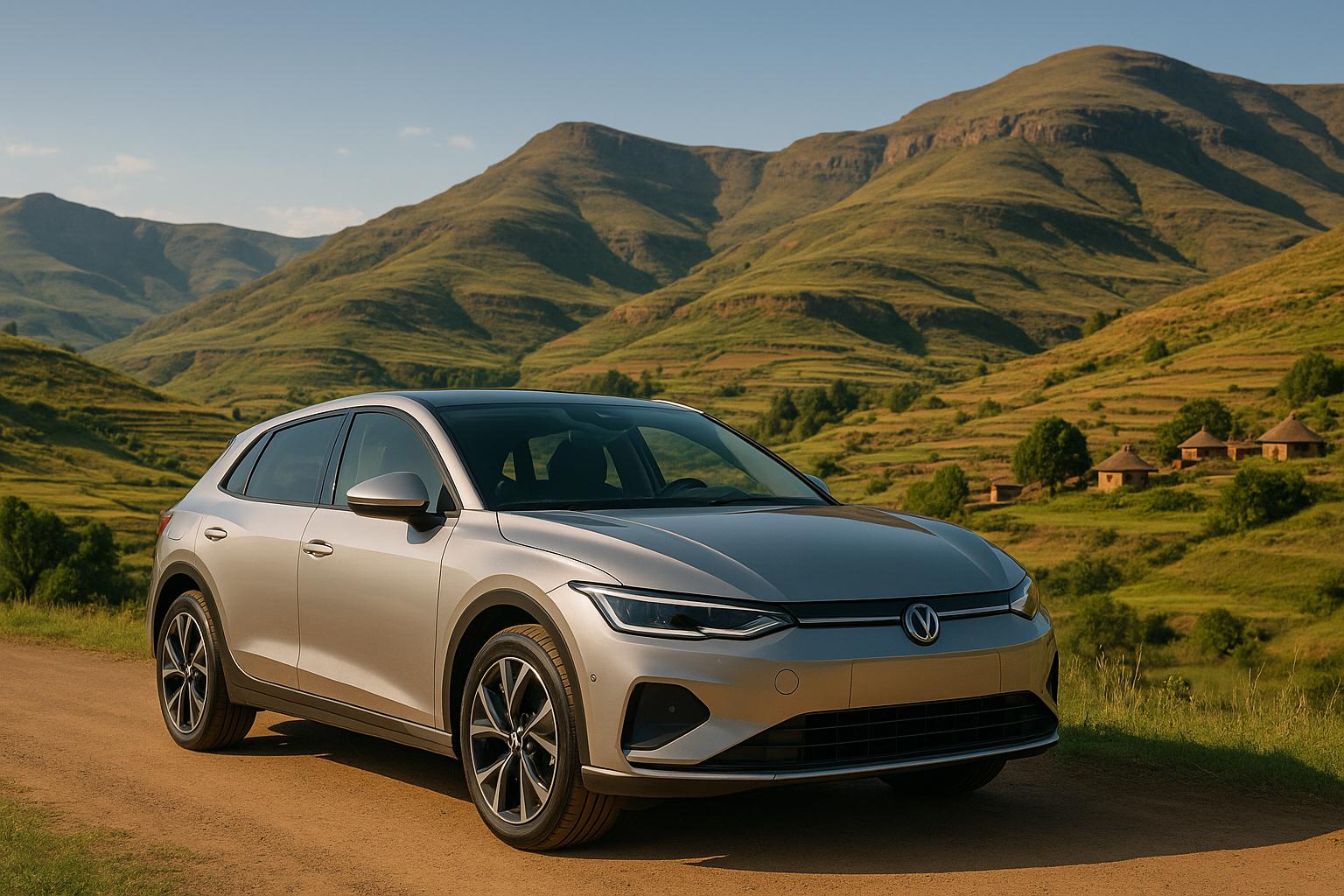
Lesotho has set up new rules for bringing in electric cars (EVs) in 2025, to make them cheaper and more easy to get. Here’s what you need to know:
- No VAT or Customs Costs for EVs: Electric cars won’t have VAT or customs fees, cutting down the price a lot.
- Step-by-Step Tax Cuts for Hybrids: Hybrids won’t get full tax breaks, but they will see some tax cuts.
- Easier Way to Bring Them In: Clear steps for signing up, customs, and needed papers make the whole process simpler.
- Help for Businesses from the Government: Firms can get perks like tax breaks, loans, and help from the Lesotho National Development Corp (LNDC).
- Building Places to Charge Cars: Plans are to set up charging spots and fix issues with power to help more people use EVs.
These moves fit with how the world is starting to use more EVs and try to lower costs for buyers, push for less dirty ways to travel, and help Lesotho take part in the area’s EV market.
Lesotho launches its first electric car
Lesotho’s 2025 EV Bring-In Plan
By 2025, Lesotho’s plan to bring in electric cars (EVs) shows a move toward clean rides and matching up with the world push for electric cars. This plan grows out of the land’s past in making things and also tries to fix big breaks in setup and rules that have made it hard for people to start using EVs.
This move comes from the idea that moving to using electric cars is about more than just cuts in taxes. As the Economic Advisor to the Prime Minister Elias Tsepi said:
"Lesotho has a long-track record in manufacturing and that the major gaps in the sector are in skills training, building a legal framework."
With this thought, the policy uses a full plan, mixing the need for EV imports now with goals for market growth and building system work for later. The timing fits with world moves, as nations everywhere work to make transport systems electric with clear goals. Lesotho’s plan also keeps it competitive in the Southern African Customs Union (SACU) and the Southern African Development Community (SADC).
Main Goals of the 2025 Policy
The 2025 policy has three key aims:
- Cutting Environmental Impact: By pushing for more use of EVs, Lesotho hopes to cut down on bad air while helping its goal to reach 200 MW power by 2025, up from now at 72 MW.
- Economic Growth: Using local making to join the regional car making chain while dealing with many second-hand car imports.
- System and Rules: Making more EV charge spots and setting clear tech and rule standards.
The policy learns from others, seeing how key it is to work together to grow charge spots and set even rules. It also looks at Lesotho’s power troubles, mainly the big city-country split in having power. Right now, only 34.9% of country homes have power, unlike 77.7% in city places. This gap guides how perks are set up and where money for building goes.
Government Plan for Electric Travel
To hit these goals, the government has a full plan that does more than just help bring in EVs. It builds on the 2023 Renewable Lesotho focus, which looks at clean power and using power well.
Part of this plan is to set up a charge spot at the GET.transform and GET.invest offices, making way for wider public use. Knowing that having places to charge is key to buyers being sure, the plan wants to make a strong network of charge spots.
Training is another big part. A tech group has started to use car rules, taking on the training gap that has held progress back.
The plan also looks at trade in the area. By fitting with SACU and SADC trade rules, the government plans to control the flow of old cars while making sure of quality and safety. This view knows the bigger market troubles in Africa, like high EV costs versus what people earn, seen in places like Nigeria.
Lastly, the plan sees Lesotho’s need for power from outside, from South Africa and Mozambique, to meet its high need of 160 MW. To make sure the grid can take more EV use, the government links more renewable power ability to the bigger push for electric travel, making the shift work well and last.
EV Import Tax and Fee Guide
If you bring an electric vehicle (EV) to Lesotho, you must learn its tax and fee rules. As part of the Southern African Customs Union (SACU), Lesotho uses a joint tariff plan. South Africa, with other SACU places, sets the tariff list, shaping how much you save from government help.
Import Fees: Rates and Their Math
Lesotho sets import fees by the CIF (Cost, Insurance, and Freight) way. This means the fee is based on the car’s full price, including its ship cost to Lesotho. For instance, if a car is US$35,000 and shipping is US$3,000, the CIF price is US$38,000. With a 25% import fee, the full fee would be US$9,500, plus clearing costs from US$130 to US$175.
Electric cars get a 25% import fee here. SACU’s fees often are from 0% to 30%. But fees are just one part – other taxes and costs also shape the final price.
Other Taxes: VAT and More Fees
The value-added tax (VAT) applies to the landed cost of the car. This adds the buy price, ship cost, and import fee together to make a new total.
In South Africa, car taxes cover VAT, carbon dioxide taxes, and an ad valorem tax, which can go up to 30% for cars worth more than US$50,000.
Also, bringing cars from outside SACU lands needs permits, making things more tricky. Regular buyers and people putting money in often meet tough permit rules, while makers might get easier terms.
Help from the Government for EV Imports
The government has put in work to cut down the costs for those bringing in electric vehicles (EVs). Lesotho now has plans to help make EVs cost less. The Ministry of the Economy has shown plans with things like no tax, and lower duties for all kinds of electric cars, pushing for cleaner ways to travel. These moves go with the country’s big goal to push forward electric travel.
The best help comes for those EVs that are all electric. They don’t face any VAT or customs fees at all. This means when you get a full EV, you pay no VAT or customs fees.
For companies, the Lesotho National Development Corporation (LNDC) gives more help to bring in EVs. They offer help like long loans, tax cuts, cheaper factory areas, help in getting work papers and licenses, and help when moving a business.
Who Gets the Help
Who gets these helps depends on the vehicle and the buyer. Fully electric vehicles get the full no VAT and customs fees help if they are 100% electric. Hybrid vehicles also get breaks, with the amount of breaks tied to what they are like.
Companies, from here or far, can use the LNDC’s help plans. They get a good 10% tax rate on money made from making things, the same for both local and outside investors.
Help Comparison by Buyer Type
| Who Buys | No VAT | No Duty | Tax On Earnings |
|---|---|---|---|
| People Buying For Self | All for EVs | All for EVs | None |
| Shops In The Area | All for EVs | All for EVs | 10% if making stuff |
| Money From Abroad | All for EVs | All for EVs | 10% if making stuff |
The government is placing a high focus on making jobs for the people of Lesotho and is really pushing for team-ups between local firms and outside investors. For those making goods, the LNDC gives full help, such as help with getting permits, licenses, and dealing with moving troubles. They also aid with work permits and the steps to move, making it less hard for firms to set up in Lesotho. These steps work to make Lesotho a good place to put money into the electric car field.
Understanding Costs and Savings for EV Importers
It’s key to know the costs of bringing an electric vehicle (EV) into Lesotho under the 2025 rules. These new rules bring big changes in import costs that depend on the car type and how much the government helps. Let’s look at how these costs change.
Costs of EV Imports
Bringing EVs in can have different costs, a lot depends on government help. Without help, importers pay high SACU tariffs, up to 30%. Yet, cars that get full EV help don’t pay VAT or custom fees. Here, the only extra costs are clearing fees, from $119 to $180 per shipment, and shipping fees from South African ports like Durban.
For pricey EVs, the savings are bigger. Since clearing fees don’t change, not having to pay VAT or customs means saving more money. Hybrid cars get some cost cuts, based on their electric parts.
Total Savings from Help
Government help cuts down the costs a lot. With SACU tariffs hitting up to 30%, savings for EV importers can be big.
The long-term savings are also good. Lower first costs and less running costs make EVs a cheap choice. This fits with Lesotho’s big plans to push electric cars. The Economy Ministry’s steps aim to grow the market and make importing EVs cheaper.
Also, EV24.africa makes importing through Durban smoother, ensuring safe and quick transport to Lesotho. Their easier logistics let importers make the most of the help while dodging big problems.
sbb-itb-99e19e3
Changes in the 2025 Import Rules and How They Impact Lesotho’s EV Market
The new import rules are changing how electric cars (EVs) come into Lesotho, marking a big shift in how the country deals with electric cars. These changes will affect the whole car market, bring new chances, and tackle old problems.
How People Are Taking Up EVs and Market Growth
Lesotho’s EV market is set to grow fast with the 2025 import rules. With more people around the world wanting EVs, Lesotho is making its rules better to help people start using EVs and to keep the market in check. Reports say the world EV market grew by 35% in 2023, and EVs will make up 30% of all cars in the world by 2030. By 2024, the world had over 50 million EVs, showing more people want cleaner cars. Lesotho is moving towards electric and hybrid cars too, like other places, and this puts it in a good spot to make the most of the global shift.
But, Lesotho has its own tough spots. The country uses ports in South Africa, mainly Durban, for bringing things in because it has no sea ports and only a small airport. This can make moving things hard. But, good roads and rail links to Durban help make things a bit easier. Also, new government perks and rules now make it easier to switch to EVs by balancing limits on bringing in used cars.
These changes are making things smoother for those bringing cars in and are making the EV market stronger.
How EV24.africa Helps Importers
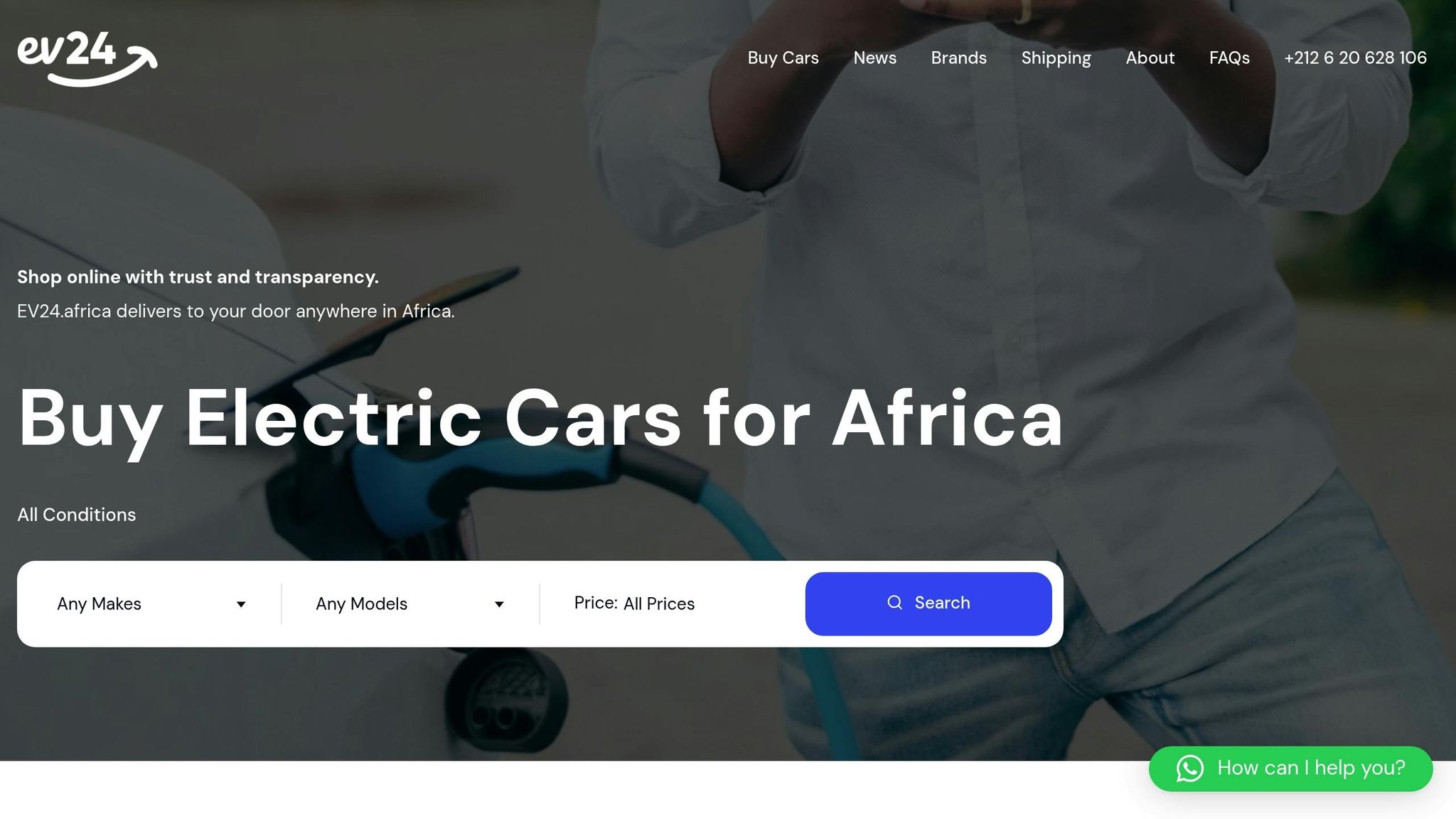
In this changing scene, EV24.africa is becoming a key helper for those dealing with Lesotho’s new import rules. The platform makes importing easier by dealing with customs and local registration, making sure everything follows the 2025 rules.
EV24.africa puts many services together so you don’t need separate agents in South Africa and Lesotho, making the whole process simpler. With clear prices and ways to pay, the platform helps importers use Lesotho’s tax perks to save money under the new rules. With a focused team in Lesotho, EV24.africa makes sure it meets customers’ needs well and fast.
The platform also has flexible ways to ship cars, including RoRo and container shipping, which are good for how Lesotho depends on South African ports. Customers can pick from a lot of EVs from Europe, Asia, North America, and Japan. These cars fit different levels of perks under the new rules.
By dealing with common problems like port crowds, customs value problems, and hard import permits, EV24.africa gives a smooth experience for importers. Customers can get a quote to handle the whole import process, freeing them from the need to work with many service providers across places.
As Lesotho and other new markets bring in rules and perks to grow EV use, EV24.africa shines as a key ally. Its know-how aids those who bring in cars to work with the fresh rules and make the most of the chances they offer.
What You Need to Know About Lesotho’s 2025 EV Import Rules
In 2025, Lesotho will change how it lets in electric cars (EVs). It’s part of a group called the Southern African Customs Union (SACU), where several countries agree on tax rules. This means that the cost to bring EVs into Lesotho usually falls within a known range of prices, but some types may have to pay more.
The cost to get EVs into the country is more than just these taxes. Each load that comes in has a set fee. Yet, importers can cut costs if they get special tax rates from another group, the Southern African Development Community (SADC). These costs are just the start of new rules that might come.
In April 2025, the U.S. made it more pricey to bring goods from Lesotho into the U.S. They put on a 50 percent tax. On the other hand, Lesotho was going to raise its taxes too in April but moved it to August 1, 2025. This gives those who bring goods in a bit of time to think and plan.
New rules also aim to make it easier to bring in EVs. The changes affect taxes, fees, and perks to help people bring in these cars. Sites like EV24.africa are there to help importers keep up with these rule changes.
With these new clear costs and perks, those who bring in cars can plan better, pick cars in a smart way, and keep costs in check. These changes show Lesotho wants a strong market for electric cars.
FAQs
What happens if we cut VAT and customs fees on electric cars in Lesotho?
No Tax Makes Electric Cars Cheaper in Lesotho
Lesotho has decided to cut VAT and customs fees on electric cars, which will make them less costly. These taxes usually add a lot of money to the price, so taking them away means big savings for buyers.
This change will make the price of electric vehicles go down, letting more people and businesses think about going electric. By dropping these costs, the leaders want more people to pick electric cars and help make the country’s air cleaner and greener.
What will the 2025 EV import rules in Lesotho mean for costs to those who bring them in, given that there are trade deals like SACU and SADC?
Lesotho’s 2025 EV Import Rules
In 2025, Lesotho will put in new rules for bringing in electric vehicles (EVs). These rules are shaped by trade deals in the area like the Southern African Customs Union (SACU) and the Southern African Development Community (SADC). These deals aim to make trade easy and lower costs among the countries in them. They might lead to low or no costs on some goods. For those who import EVs, this could mean they can save money while they help trade in the region.
But from April 2025, Lesotho will also start a 10% import tax on all goods from outside, including EVs. Even though the trade deals might help save some money, this new tax will up the costs that importers must think about when they plan their money. To deal with these changes well, businesses will need to weigh the good of the trade deals against the new tax. This will help them make wise choices on where to get EVs and how to price them.


